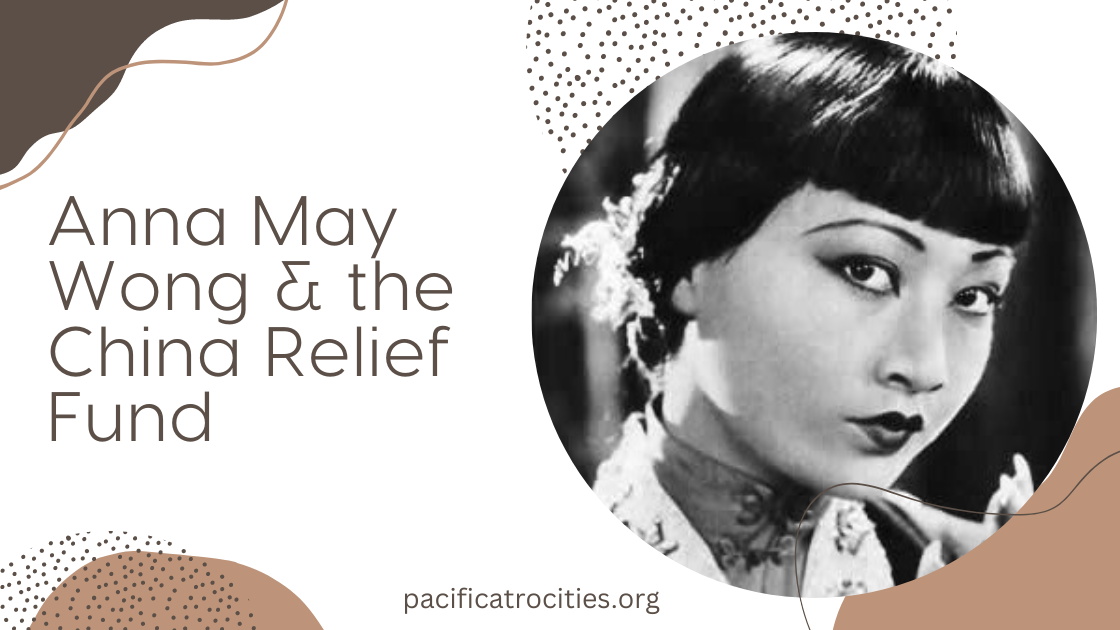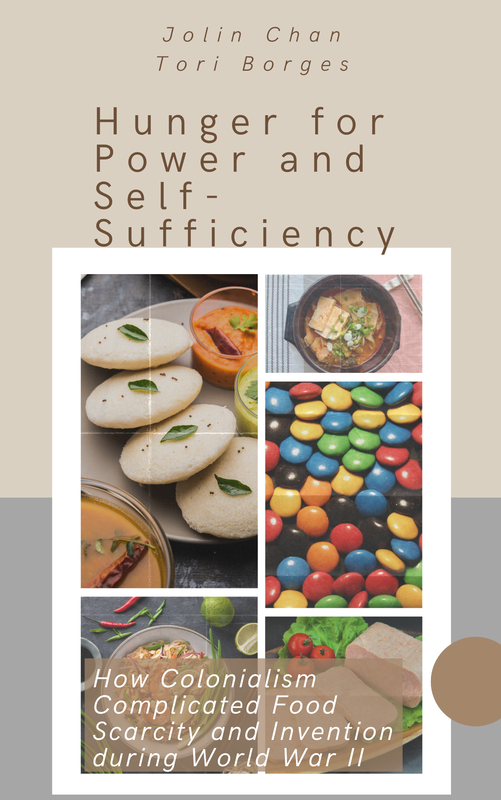|
by Emma Sampson-Green In the annals of Hollywood history, only a few actors have managed to transcend racial barriers and achieve international fame. One such trailblazer was Anna May Wong, the first Chinese-American actress to impact the big screen during the 20th century significantly. Beyond her remarkable contributions to the entertainment industry, Wong was also a fervent advocate for the China Relief Fund. This charitable endeavor aimed to provide aid and support to China during World War II, using her fame to support this critical humanitarian cause during a tumultuous historical period. In this article, we will delve into the life of Anna May Wong and her remarkable efforts in supporting the China Relief Fund. Born on January 3, 1905, in Los Angeles, California, as Wong Liu Tsong, Anna May Wong's journey to stardom was inspiring. In the early 1910s, at the tender age of 17, she made her screen debut and swiftly garnered attention for her exceptional acting abilities. However, Hollywood's prevailing racial prejudices placed Asian actors into stereotypical and often demeaning roles. Despite these barriers, Wong's determination and talent were unstoppable, and she began to land leading roles in films that allowed her to showcase her versatility and skill. Her performances in "The Toll of the Sea" (1922) and "Piccadilly" (1929) were particularly noteworthy, as they defied racial stereotypes and demonstrated her capability as a talented actress. Throughout her career, Anna May Wong faced relentless racial discrimination, a pervasive issue in the entertainment industry at that time. Despite her undeniable talent and potential, Wong often found herself typecast as a "dragon lady" or a subservient character, limiting her opportunities to portray complex and empowering roles. Nevertheless, she remained resolute in her pursuit of breaking these stereotypes, not just for her own benefit but for future generations of Asian actors. Her tenacity and refusal to be confined by societal expectations laid the groundwork for a more diverse and inclusive Hollywood. In 1937, China was thrust into the midst of the Second Sino-Japanese War, a devastating conflict that lasted until 1945. The Japanese invasion of China resulted in unimaginable suffering for Chinese civilians, facing violence, displacement, and widespread humanitarian crises. In response to this dire situation, various relief organizations, including the China Relief Fund, sprang into action to provide much-needed aid to the affected population. Anna May Wong's passion for her ancestral homeland and her desire to alleviate the suffering of her fellow countrymen fueled her commitment to the China Relief Fund. Throughout the late 1930s and early 1940s, she actively participated in numerous fundraising events and campaigns to raise awareness and funds for the cause. One notable event was the "United China Relief Night" held at the iconic Madison Square Garden in New York City in 1939. Wong, alongside other prominent celebrities, lent her star power to this event, delivering impassioned speeches that urged the public to support the relief efforts. Anna May Wong's involvement with the China Relief Fund made a tangible difference in the lives of countless Chinese civilians impacted by the war. Her contributions, along with those of other activists and philanthropists, helped provide essential aid, such as food, medical supplies, and shelter, to those in need. Wong's dedication to humanitarian causes went beyond financial support; her visibility as a prominent actress brought international attention to the plight of China during a time when the world needed to come together to support those in crisis. Anna May Wong's life journey exemplifies the triumph of talent and resilience over adversity and prejudice. As a pioneering Chinese-American actress in Hollywood, she defied stereotypes and paved the way for future generations of Asian actors to find their place in the entertainment industry. Moreover, her unwavering dedication to the China Relief Fund during the Second Sino-Japanese War demonstrated her commitment to using her platform for humanitarian causes. Anna May Wong's legacy continues to inspire, reminding us of the power of compassion, advocacy, and the indelible impact one person can make in times of crisis. Bibliography Alexander, Kerri Lee. Biography: Anna May Wong, www.womenshistory.org/education-resources/biographies/anna-may-wong. Accessed August 19 2023. "Anna May Wong: The Legacy of a Groundbreaking Asian American Star." The Guardian, Guardian News and Media, October 19 2022, www.theguardian.com/film/2022/oct/19/anna-may-wong-hollywood-legacy-us-currency. Boomer, Lee. "Life Story: Anna May Wong, 1905–1961." Women & the American Story, February 7 2023, wams.nyhistory.org/confidence-and-crises/jazz-age/anna-may-wong/. Gow, William. "A Night in Old Chinatown: American Orientalism, China Relief Fundraising, and the 1938 Moon Festival in Los Angeles." Pacific Historical Review, vol. 87, no. 3, 2018, pp. 439–72. JSTOR, https://www.jstor.org/stable/26504174. Accessed August 20 2023. "Second Sino-Japanese War." Encyclopedia Britannica, Encyclopedia Britannica, inc., August 8 2023, www.britannica.com/event/Second-Sino-Japanese-War. Sun, Rebecca. "Gemma Chan, Nina Yang Bongiovi Developing Anna May Wong Biopic with Working Title Films (Exclusive)." The Hollywood Reporter, The Hollywood Reporter, March 25 2022, www.hollywoodreporter.com/movies/movie-news/anna-may-wong-biopic-gemma-chan-1235118243/. "United Service to China." Rockefeller Brothers Fund, www.rbf.org/about/our-history/timeline/united-service-china#:~:text=Created%20to%20secure%20funds%20for,consolidate%20American%20fundraising%20for%20China. Accessed August 19 2023. Read More:
0 Comments
Leave a Reply. |
- Home
- Stories
-
Internship
- Summer 2024 Internship
- Summer 2023 Internship
- Fall 2022 Internship
- Summer 2022 Internship
- Summer 2021 Internship
- Fall 2020- Spring 2021 Internship
- Summer 2020 Internship
- Fall 2019 Internship
- Summer 2019 Internship >
- School Year 2018-2019 Internship
- Summer 2018 Internship >
- Fall 2017 Internship
- Summer 2017 Internship >
- Books
- Archives
-
Resource Page
-
Supplementary Research Guides
>
- Unit 731 - Guide >
-
Philippines' Resistance - Guide
>
- Philippines World War II Timeline
- The Japanese Invasion & Conquest of the Philippines
- Bataan Death March
- Formation of Underground Philippines Resistance
- Supplies of the Guerrilla Fighters
- The Hukbalahap
- Hunter's ROTC
- Marking's Guerrillas
- United States Army Forces in the Philippines of Northern Luzon (USAFIP-NL)
- The Aetas
- Chinese and Filipino-Chinese Nationalist Guerrilla Units
- The Female Faces of the Philippine Guerrillas
- Rising Sun Flag - Guide >
- Pinay Guerrilleras - Guide >
- Fall of Singapore - Guide >
- Three Years and Eight Months - Guide >
- Siamese Sovereignty - Guide >
- The Khabarovsk War Crimes Trial - Guide >
- Unit 731 Cover-up : The Operation Paperclip of the East - Guide >
- Marutas of Unit 731 - Guide >
- Prince Konoe Memoir - Guide >
- Competing Empires in Burma - Guide >
- Battle of Shanghai - Guide >
- Ishi Shiro - Guide >
- Taiwan The Israel of the East - Guide >
- Seeking Justice for Biological Warfare Victims of Unit 731 - Guide >
- Rice and Revolution - Guide >
- Clash of Empires - Guide >
-
Hunger for Power and Self-SufficiencyI - Guide
>
- The Influence of War Rations on Post-War Culinary Transformations
- How World War II Complicated Food Scarcity and Invention
- American Military Innovations
- Government-Sponsored Food Inventions in Europe during World War II
- Feeding the Army: The Adaptation of Japanese Military Cuisine and Its Impact on the Philippines
- Mixed Dishes: Culinary Innovations Driven by Necessity and Food Scarcity
-
Denial A Quick Look of History of Comfort Women and Present Days’ Complication - Guide
>
- The Comfort Women System and the Fight for Recognition
- The Role of Activism and International Pressure
- The Controversy over Japanese History Textbooks
- The Sonyŏsang Statue and the Symbolism of Public Memorials
- Activism and Support from Japanese Citizens
- The Future of Comfort Women Memorials and Education
- Echoes of Empire: The Power of Japanese Propaganda - Guide >
- Lesson Plans >
-
Supplementary Research Guides
>
|
Pacific Atrocities Education
730 Commercial Street San Francisco, CA 94108 415-988-9889 |
Copyright © 2021 Pacific Atrocities Education.
We are a registered 501 (c)(3) charity. |
- Home
- Stories
-
Internship
- Summer 2024 Internship
- Summer 2023 Internship
- Fall 2022 Internship
- Summer 2022 Internship
- Summer 2021 Internship
- Fall 2020- Spring 2021 Internship
- Summer 2020 Internship
- Fall 2019 Internship
- Summer 2019 Internship >
- School Year 2018-2019 Internship
- Summer 2018 Internship >
- Fall 2017 Internship
- Summer 2017 Internship >
- Books
- Archives
-
Resource Page
-
Supplementary Research Guides
>
- Unit 731 - Guide >
-
Philippines' Resistance - Guide
>
- Philippines World War II Timeline
- The Japanese Invasion & Conquest of the Philippines
- Bataan Death March
- Formation of Underground Philippines Resistance
- Supplies of the Guerrilla Fighters
- The Hukbalahap
- Hunter's ROTC
- Marking's Guerrillas
- United States Army Forces in the Philippines of Northern Luzon (USAFIP-NL)
- The Aetas
- Chinese and Filipino-Chinese Nationalist Guerrilla Units
- The Female Faces of the Philippine Guerrillas
- Rising Sun Flag - Guide >
- Pinay Guerrilleras - Guide >
- Fall of Singapore - Guide >
- Three Years and Eight Months - Guide >
- Siamese Sovereignty - Guide >
- The Khabarovsk War Crimes Trial - Guide >
- Unit 731 Cover-up : The Operation Paperclip of the East - Guide >
- Marutas of Unit 731 - Guide >
- Prince Konoe Memoir - Guide >
- Competing Empires in Burma - Guide >
- Battle of Shanghai - Guide >
- Ishi Shiro - Guide >
- Taiwan The Israel of the East - Guide >
- Seeking Justice for Biological Warfare Victims of Unit 731 - Guide >
- Rice and Revolution - Guide >
- Clash of Empires - Guide >
-
Hunger for Power and Self-SufficiencyI - Guide
>
- The Influence of War Rations on Post-War Culinary Transformations
- How World War II Complicated Food Scarcity and Invention
- American Military Innovations
- Government-Sponsored Food Inventions in Europe during World War II
- Feeding the Army: The Adaptation of Japanese Military Cuisine and Its Impact on the Philippines
- Mixed Dishes: Culinary Innovations Driven by Necessity and Food Scarcity
-
Denial A Quick Look of History of Comfort Women and Present Days’ Complication - Guide
>
- The Comfort Women System and the Fight for Recognition
- The Role of Activism and International Pressure
- The Controversy over Japanese History Textbooks
- The Sonyŏsang Statue and the Symbolism of Public Memorials
- Activism and Support from Japanese Citizens
- The Future of Comfort Women Memorials and Education
- Echoes of Empire: The Power of Japanese Propaganda - Guide >
- Lesson Plans >
-
Supplementary Research Guides
>

